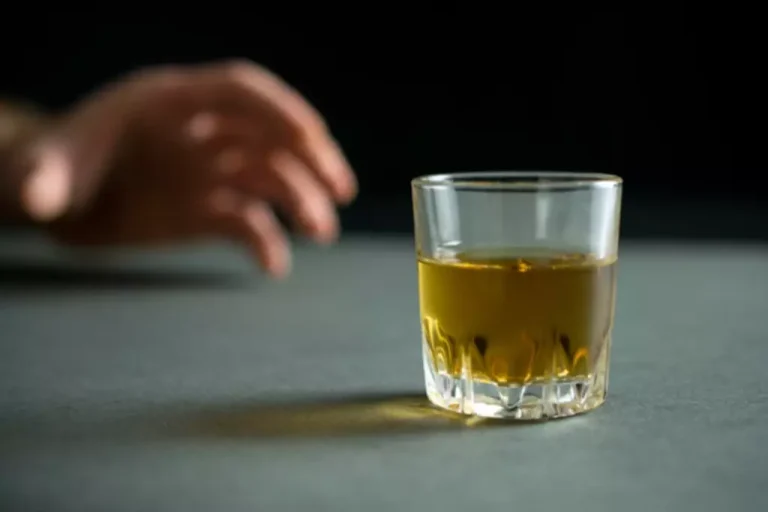
Side effects from alcohol withdrawal range from mild to severe, and some are life-threatening. Typical withdrawal side effects include sweating, anxiety, insomnia, headache, nausea, vomiting, and tremors. Side effects like hallucinations, seizures, and delirium tremens (DTs) are also possible.
Alcohol shakes vs. delirium tremens
The phenomenon, which is usually present in the early stages of hepatic encephalopathy and is called asterixis, is sometimes compared to a bird flapping its wings. On average, an alcoholic who doesn’t stop drinking can expect to decrease his or her life expectancy by at least 15 years. A cerebellar tremor is a type of shaking that occurs at the end of a purposeful movement. There are several reasons a person might experience tremors with a hangover.
- Others report experiencing hangover shakes in their arms, eyes, head, and even their voice.
- Someone with delirium tremens needs immediate treatment in a hospital.
- Traditionally, mulled wine contains sugar, but people can replace it with stevia, a natural sweetener and alternative to sugar.
- This stage of alcohol withdrawal, which can begin anywhere from 2 to 10 days after the last drink, can be fatal.
- A hangover usually begins a few hours after you finish drinking, as your blood alcohol concentration (BAC) begins to fall.
- When your detox is complete, the easiest and most beneficial way to move forward may be to start inpatient or outpatient substance abuse treatment.
White wine spritzer
- If you don’t already have a supportive network, you can make new connections by joining social media communities dedicated to alcohol-free living.
- The answer to this question depends on context but, just because a person experiences shaking does not mean they meet the criteria for AUD.
- The treatment aims to help relieve your symptoms, reduce the chance of complications and, if DTs are bad, save your life.
- Many of those recovering from substance use feel alone in their struggle for sobriety.
- Focus on a diet full of lean proteins like fish, chicken, lean meats, beans, lentils, nuts and nut butters, and nonfat dairy products.
As it tries to cope with the influx of messages from the nervous system, your brain sends out signals that create the shakes or tremors you’re experiencing. For those recovering from an alcohol abuse disorder, making it through the weeks of withdrawal symptoms can be one of the biggest hurdles to overcome. One symptom that can be quite frightening — and especially dangerous, if not medically supervised — is shaking or tremors as a result of stopping alcohol consumption abruptly. The term “alcohol shakes” paints a vivid picture of what many people undergo during alcohol withdrawal. Imagine your hands or, in severe cases, your whole body trembling uncontrollably. These are not just any tremors; they are fits of involuntary shaking linked directly to alcohol.
Alcohol-related brain damage

Alcohol shakes, as evident by their name, are most common among individuals who suffer from alcohol addiction. They are usually a symptom of alcohol withdrawal, but can be a result of other alcohol-related issues as well. A statement from the WHO notes that no level of alcohol consumption is safe for health. The statement adds that the potential benefits of light and moderate drinking on heart health and type 2 diabetes do not outweigh the cancer risk. People with alcohol use disorder should be monitored by a medical professional when withdrawing from alcohol.

The following list of medications are related to or used in the treatment of this condition. You’ll also want to eliminate foods and get rid of alcohol shakes beverages that make you feel jittery. Caffeine can make you feel shaky even if your body isn’t reacting to a lack of alcohol.
How to Choose the Best Drug & Alcohol Detox Center in Pompano Beach
Millions of people join support groups to help stop drinking and stay stopped. Studies show support groups play an instrumental role in helping people develop healthy social networks that result in continued sobriety. For people at low risk of complications, an office visit to your primary care provider, along with at-home monitoring and virtual office visits, may suffice.
The shakes also called tremors can begin 6-10 hours after the last drink, and tend to be the most pronounced from the last alcohol consumption. Alcohol shakes, or tremors, occur when a long-term or heavy drinker stops consuming alcohol. It can vary from person to person, but they are a common symptom of alcohol withdrawal. In the case of long-term alcoholics, though, shakes can be a sign of delirium tremens, which is a very serious condition. While shakes are common with delirium tremens, it can also bring on seizures, which result in convulsions that may resemble shaking.
- While you can usually manage alcohol withdrawal syndrome on your own, it can be quite uncomfortable.
- If you experience any of them, however, you should also seek medical attention right away.
- For people who experience hallucinations as part of alcohol withdrawal, these may begin in the 12- to 24-hour time frame.
- Stopping drinking abruptly can lead to seizures and can even be fatal.
Medications to Ease Withdrawal Symptoms
BlueCrest Recovery Center takes a whole-person approach to treatment, considering not only a person’s physical needs but also their emotional, psychological, and spiritual needs. Engaging in appropriate lifestyle habits can also help improve alcohol shakes. Exercising regularly, eating a balanced diet, and managing stress with yoga, meditation, or other relaxation techniques can play an important role in reducing tremor frequency.
- The liver metabolizes alcohol at a rate of approximately one drink per hour, and any remaining alcohol continues to circulate in the bloodstream.
- Moderate to heavy drinkers can also benefit from medical supervision in the acute withdrawal stage.
- Low electrolyte levels can cause cardiac complications such as arrhythmias and heart attacks.
- Alcohol shakes, which are technically called tremors, are a type of involuntary shaking that affects different parts of the body.
Your doctor can help manage shakes

